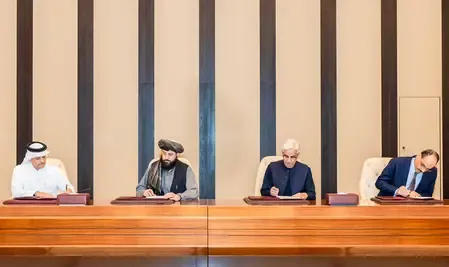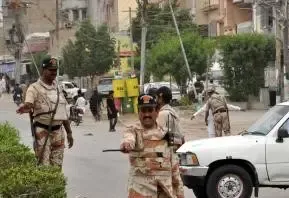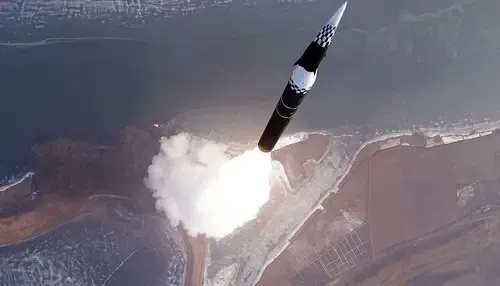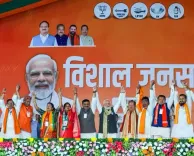What Lies Behind the Failed Af-Pak Talks?

Synopsis
Key Takeaways
- Negotiations ended in a deadlock due to mutual distrust.
- Pakistan's demands include dismantling militant groups in Afghanistan.
- Verification mechanisms were a major point of contention.
- The repatriation of Afghan refugees poses challenges for the Taliban.
- Regional mediators expressed disappointment at the lack of progress.
New Delhi, Nov 8 (NationPress) In a renewed effort, regional negotiators aimed to forge a peace agreement between Afghanistan and Pakistan; however, the talks concluded in a deadlock in Istanbul amidst ongoing hostilities between the two nations. The atmosphere is marred by a pervasive lack of trust, with pride and attempts to rationalize individual positions taking precedence over other critical issues. This impasse raises significant concerns about regional stability.
The evident trust deficit was apparent even before the negotiators departed for Istanbul, the site of the third round of discussions mediated by Qatar and Turkey. Pakistan’s Defence Minister Khawaja Asif cast doubt on the Taliban government's authority to engage in talks, blaming India for its influence over Kabul instead of seeking to mend relations with the Taliban, a former ally of Islamabad.
As the second day of discussions drew to a close on November 7, Asif announced a “complete deadlock” to the media in Pakistan, highlighting that the Afghan delegation arrived “without any program” and refused to sign any written agreements.
At the core of this stalemate are several conflicting priorities. Islamabad insists that Afghan militants operating in Pakistan—particularly factions of the Tehreek-e-Taliban Pakistan (TTP) and their affiliates—must be decisively eliminated, and it demands a written, verifiable mechanism to avert cross-border attacks.
Amidst this, Pakistan is under immense pressure to resolve national security issues and ensure political stability. Various uprisings from Baluchistan to Pakistan-occupied-Kashmir have ignited public discontent and pressed military and civilian leaders to deliver results.
On the other hand, the Taliban has dismissed what it perceives as Islamabad's attempts to dictate Afghan security policies, asserting that Kabul will not serve as a policing entity for Pakistan or engage in open-ended commitments that might justify foreign intervention.
The Taliban argues that actions against militant factions should adhere to Afghan law and respect sovereignty, while also pointing to incursions and artillery strikes from Pakistan that they claim undermine negotiations.
Another significant hurdle is the issue of verification. Islamabad seeks written, monitorable commitments and a framework for third-party verification, which the Afghan delegation views as an infringement on its sovereignty. This mismatch has prevented both parties from overcoming the trust deficit in Istanbul.
The Afghan Taliban has consistently rejected any claims of harboring the Pakistan-Taliban or facilitating terror attacks across the border. A written commitment would mean conceding to Islamabad's allegations regarding Kabul’s involvement in covert operations against Pakistan.
Furthermore, the repatriation of Afghan refugees looms large over the discussions. With Pakistan opening its gates to thousands of returnees, the Taliban faces a mounting challenge. International organizations have urged Islamabad to manage the influx, but to little effect.
While Pakistan has declared the talks effectively concluded, the Taliban and Afghan state media portrayed the results differently, underscoring the fragile ceasefire while rebuffing Islamabad’s key demands. The two parties had initially agreed to a ceasefire and mechanisms to reinforce peace in the first round of talks held in Doha in October this year.
They also planned follow-up meetings to ensure the sustainability of the ceasefire and verify its effective implementation, contributing to security and stability in both nations. However, the two subsequent rounds in Istanbul ended in a standoff, revealing deep-seated mistrust, diverging security priorities, and conflicting domestic pressures.
On the day the third round of discussions was set to resume (November 6), gunfire erupted between Pakistani and Afghan forces at the Spin Boldak-Chaman border crossing in Kandahar province. Both sides traded accusations regarding the initiation of the conflict.
Mediators from Qatar and Turkey have reportedly expressed their disappointment at the talks concluding in a stalemate, exacerbating regional tensions.









